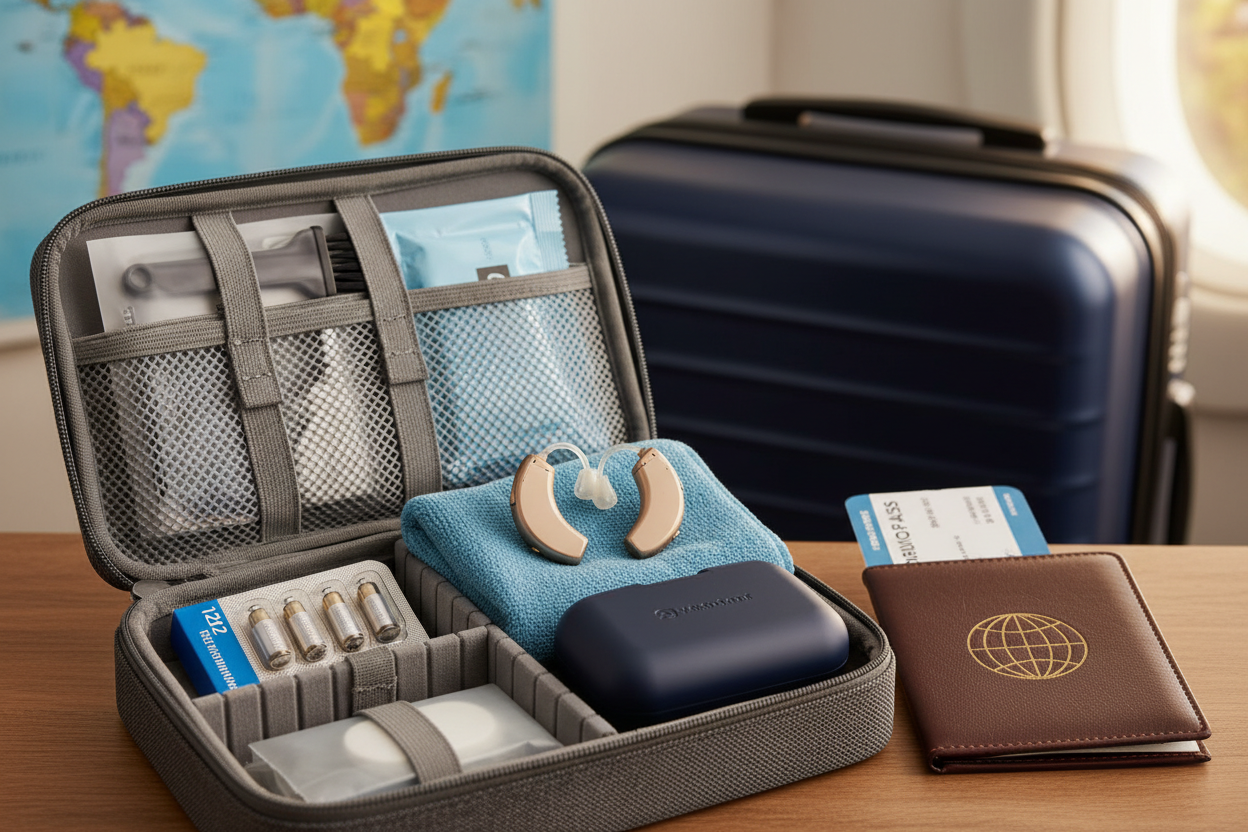Adjusting to hearing aid is a transformative journey—whether you’re the wearer or a caregiver supporting a loved one. Sounds may seem unfamiliar at first, but with time, patience, and the right approach, hearing aid can significantly enhance communication, confidence, and quality of life. In this guide, we’ll cover 10 expert tips to help both hearing aid users and caregivers navigate the adjustment process.
For Hearing Aids Users: Making the Transition Easier
1. Start in a Quiet and Familiar Environment
One of the best ways to ease into your hearing aid is by wearing them in a calm, controlled setting—like your home. This allows you to focus on familiar sounds without distractions from loud environments.
What to Expect:
- Everyday noises, like the refrigerator hum or clock ticking, may sound unusually loud at first.
- Your brain needs time to retrain itself to filter and prioritize sounds naturally.
2. Gradually Increase Wearing Time
You don’t have to wear your hearing aid all day from the start. Instead, begin with a few hours and gradually extend the duration as you grow accustomed to them.
Suggested Schedule for the First Week:
- Day 1-2: Wear for 2-4 hours at home.
- Day 3-4: Increase to 4-6 hours and introduce light background noise.
- Day 5-7: Try them in public settings like a park or quiet café.

3. Practice Listening in Different Situations
Hearing aids amplify all sounds, so learning to focus on important ones takes time. Practice listening in different environments to strengthen your ability to filter sounds.
Recommended Listening Exercises:
- One-on-one conversations: Start with a friend or family member.
- Audiobooks & podcasts: Helps retrain your brain to process speech patterns.
- TV or radio: Use closed captions to reinforce comprehension.
4. Read Aloud to Yourself
You may notice that your voice sounds different when wearing hearing aid. This is because they enhance higher-frequency sounds, which you may not have heard clearly before.
How to Get Used to Your Own Voice:
- Read a book or newspaper aloud.
- Speak at different volumes to see how it feels.
- Record yourself and listen back to understand how your voice sounds to others.
5. Schedule a Follow-Up Appointment for Adjustments
After a few weeks, you may realize your hearing aids need fine-tuning. Audiologists can adjust the settings to improve comfort and clarity.
When to Schedule a Follow-Up:
- If voices sound too sharp or muffled.
- If background noise feels overpowering.
- If your ears feel uncomfortable or sore.
For Caregivers: Helping a Loved One Adjust
6. Be Patient & Encouraging
Adjusting to hearing aid isn’t instant—it can take several weeks for someone to feel comfortable. Many people struggle at first and may even want to give up.
How to Offer Support:
- Remind them that the adjustment period is temporary.
- Encourage small wins (e.g., successfully hearing a phone ring).
- Avoid raising your voice—speak naturally and clearly instead.
7. Help Set Realistic Expectations
It’s important to remember that hearing aids do not restore perfect hearing. Instead, they enhance the sounds that are still present.
Key Facts to Share:
- Hearing aids do not block out background noise like headphones.
- The user may still struggle in noisy environments at first.
- Their brain needs time to re-learn how to process sounds.
Tip: Encourage your loved one to wear their hearing aids daily so their brain can adapt faster.
8. Communicate Effectively
Even with hearing aid, clear communication is key. Caregivers can make conversations easier by adjusting their speaking habits.
How to Talk to Someone with Hearing Aids:
- Face them directly when speaking.
- Use clear, natural speech—don’t over-exaggerate.
- Minimize background noise (e.g., turn off the TV).
9. Encourage Hearing Aids Maintenance
Hearing aids need proper care to function optimally. As a caregiver, you can remind your loved one to clean and store them properly.
Basic Hearing Aids Care Tips:
- Wipe them with a dry cloth daily.
- Store them in a dry case when not in use.
- Check batteries or charging levels regularly.
10. Celebrate Progress & Small Victories
The transition to hearing aid is a big life change. Help your loved one celebrate milestones—whether it’s hearing birdsong for the first time in years or understanding a conversation in a noisy café.
Ways to Celebrate Progress:
- Take note of sounds they’ve rediscovered.
- Remind them how far they’ve come in their journey.
- Plan social outings to test their confidence in different environments.
Final Thoughts
Hearing aids open up a world of sound—but it takes time, patience, and practice to adjust. Whether you’re a new hearing aid user or a caregiver supporting a loved one, these tips can help make the journey smoother and more enjoyable. At OKB Hearing, we’re dedicated to providing high-quality Good Voice hearing aid that enhance clarity, comfort, and confidence.
Need More Help? Contact our team for expert advice on getting the most out of your hearing aid!






Share:
Best Hearing Aids of 2025: A Comprehensive Comparison of Top Models